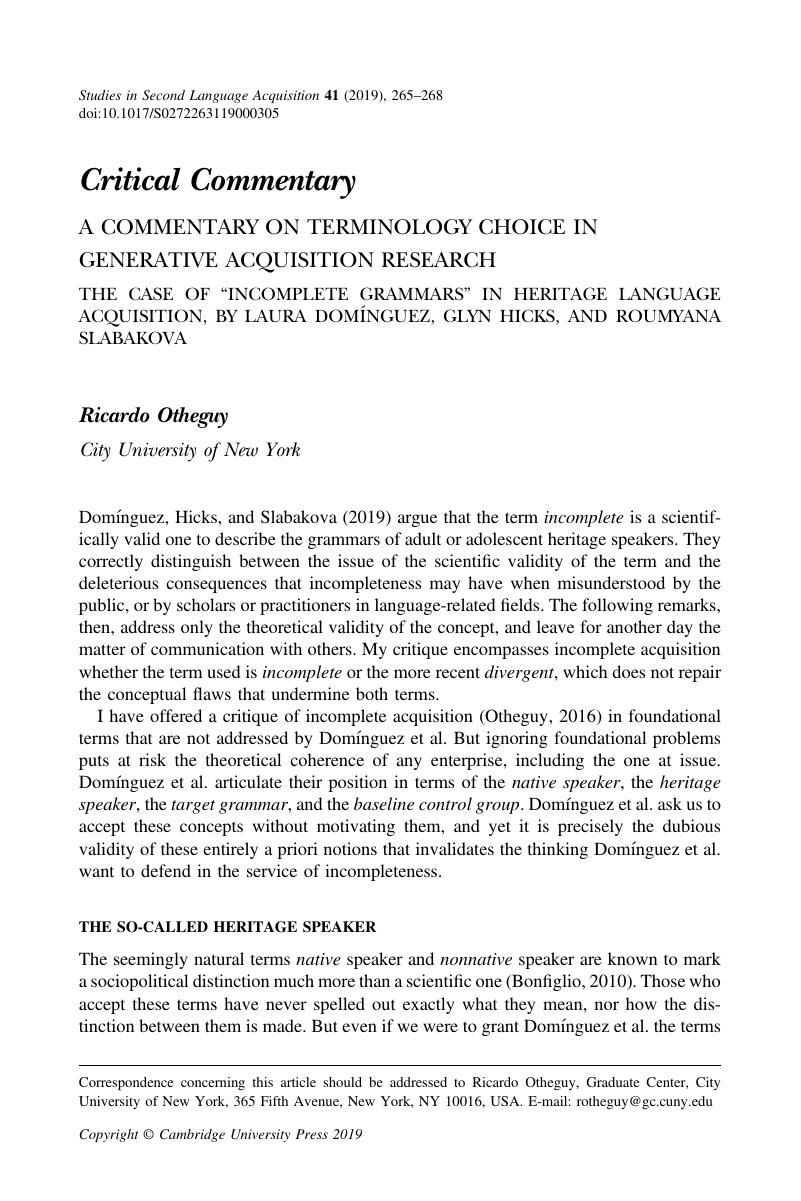Crossref Citations
This article has been cited by the following publications. This list is generated based on data provided by Crossref.
Domínguez, Laura
Hicks, Glyn
and
Slabakova, Roumyana
2019.
CHOICE OF WORDS MATTERS, BUT SO DOES SCIENTIFIC ACCURACY.
Studies in Second Language Acquisition,
Vol. 41,
Issue. 2,
p.
283.
Fernández-Dobao, Ana
and
Herschensohn, Julia
2021.
Acquisition of Spanish verbal morphology by child bilinguals: Overregularization by heritage speakers and second language learners.
Bilingualism: Language and Cognition,
Vol. 24,
Issue. 1,
p.
56.
López-Beltrán, Priscila
and
Dussias, Paola E.
2023.
Heritage speakers’ processing of the Spanish subjunctive.
Linguistic Approaches to Bilingualism,





